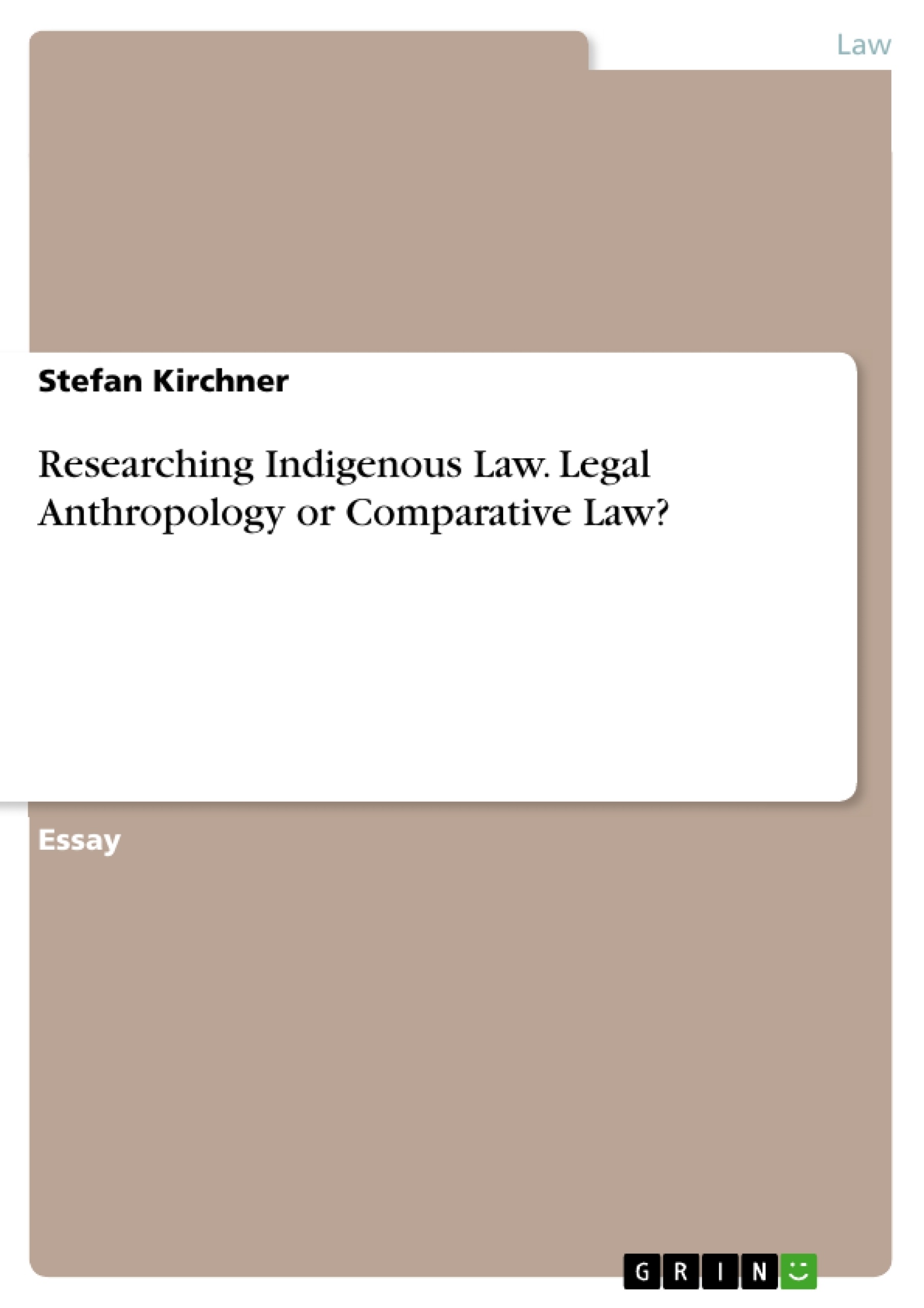In developed countries, indigenous peoples are often portrayed as (noble) savages or as remnants from an other age. However, they are neither. While being different from the majority population, and all too often having been (and often continuing to be) oppressed, in recent years a change has become visible in the attitude towards indigenous peoples. Indigenous peoples are first of all that, peoples - with their own cultures and histories. It is because of their particular lifestyle and relationship with an other culture, that they are seen as different. However, more and more indigenous peoples are taken more seriously in their own right.
In this essay the research of indigenous legal norms by outsiders is investigated from the perspective of indigenous rights. Based on a premise of respect for indigenous norms, issues such as benefit sharing and access to research results are discussed, as well as research ethics.
Inhaltsverzeichnis (Table of Contents)
- Introduction
- Perceptions of indigenous peoples in majority societies
- Indigenous Law as an Area of Research
- Legal Anthropology or Comparative Law?
- Access and Benefit Sharing
- General remarks
- Character of the duty to ensure ABS
- Beyond ABS: A duty to publish?
- General remarks
- A role for indigenous law in national law
- Differences between legal and anthropological research regarding the publication of all data
- Rule of law and the right to a fair trial
- Conclusions: Consequences for research funding
Zielsetzung und Themenschwerpunkte (Objectives and Key Themes)
This text aims to explore the intersection of indigenous law research with ethical and legal considerations surrounding the rights of indigenous peoples. It examines the unique challenges of conducting research into indigenous law, particularly regarding access and benefit sharing (ABS), and the potential for open access publishing. The text also delves into the distinct approaches of legal anthropology and comparative law in studying indigenous legal systems.
- The ethical and legal considerations in conducting indigenous law research
- The role of access and benefit sharing in indigenous law research
- The potential for open access publishing of indigenous law research results
- The differences between legal anthropology and comparative law as approaches to indigenous law research
- The potential for indigenous law research to contribute to national legal frameworks
Zusammenfassung der Kapitel (Chapter Summaries)
- Introduction: This chapter introduces the topic by examining the evolving perceptions of indigenous peoples in majority societies and how indigenous law is often overlooked in favor of anthropological or cultural studies. It emphasizes the importance of considering both ethical and legal considerations when conducting research into indigenous issues.
- Access and Benefit Sharing: This chapter explores the concept of access and benefit sharing (ABS) in relation to indigenous law research. It delves into the general remarks on ABS and discusses the nature of the duty to ensure fair and equitable benefit sharing. The author highlights the importance of ensuring that indigenous communities benefit from research conducted on their traditions and practices.
- Beyond ABS: A duty to publish?: This chapter expands on the concept of ABS by examining the potential for a duty to publish research results in indigenous law. It outlines the role of indigenous law in national law and explores the differences between legal and anthropological research regarding the publication of data. The chapter discusses the implications of open access publishing for indigenous communities and the potential role of states in funding research and publication.
Schlüsselwörter (Keywords)
This text focuses on key concepts such as indigenous law, legal anthropology, comparative law, access and benefit sharing, open access publishing, ethical research, legal considerations, indigenous rights, and the relationship between indigenous law and national law. It delves into the challenges of conducting research into indigenous law, particularly in relation to the rights and interests of indigenous communities.
Frequently Asked Questions
What is the focus of this essay on indigenous law?
The essay investigates the research of indigenous legal norms by outsiders, focusing on indigenous rights, research ethics, and legal perspectives.
What is the difference between legal anthropology and comparative law in this context?
The text examines these two distinct approaches to studying indigenous legal systems, highlighting their different methodologies and research goals.
What does "Access and Benefit Sharing" (ABS) mean for indigenous research?
ABS refers to the ethical and legal duty to ensure that indigenous communities benefit fairly from research conducted on their traditions and legal norms.
Is there a duty to publish research results on indigenous law?
The essay discusses the "duty to publish" and the implications of open access versus protecting sensitive cultural data within the legal framework.
How are indigenous peoples perceived in modern majority societies?
The abstract notes they are often portrayed as "noble savages" or remnants of another age, but emphasizes that they are peoples with their own evolving cultures and histories.
- Arbeit zitieren
- Dr. Stefan Kirchner (Autor:in), 2015, Researching Indigenous Law. Legal Anthropology or Comparative Law?, München, GRIN Verlag, https://www.hausarbeiten.de/document/301201


